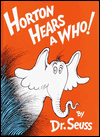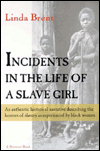



by John G. Whittier
by Herman Melville
of a Slave Girl
by Harriet Jacobs
We will begin by reading Horton Hears a Who! aloud in class. We may stop occasionally to discuss what we are reading, as necessary. Then the class will have a discussion in order to work out their ideas about the book, including themes and moral issues. I will take notes on the board. Next, the students can brainstorm in small groups to list real-life situations that go along with those themes. For instance, they might include "standing up for someone who's being picked on in school" as a way they might help someone else at their own expense (they risk being picked on themselves).
Once I feel comfortable with the students' grasp of these activities, we will move on to read Bartleby the Scrivener. Since Melville is much more difficult than Dr. Seuss, I will read the first couple of pages aloud in class and provide the students with activities to aid comprehension, such as reader response logs, self-selected vocabulary lists, and open-ended questions for them to answer as they go
From here on out, we will repeat the same process with each text. We will discuss how each text fits in with the themes and introduces new ones and how the situations and characters' actions differ. I will use the students' ideas from the class discussions and small group activities to compose essay questions and assignments according to what has interested them. I will also allow students to create their own assignments as long as I approve the topics first.
What I hope the students will take away from this unit is the knowledge that we can find common themes in very different writings, as well as the critical thinking skills to think about broad themes and ethical issues in many ways and from different viewpoints. If we see the study of literature as a study of human experience, then they can have many opportunities to consider how these issues apply to their own lives and our world today. I expect that the students will be very interested in judging right and wrong in the texts and finding modern parallels.